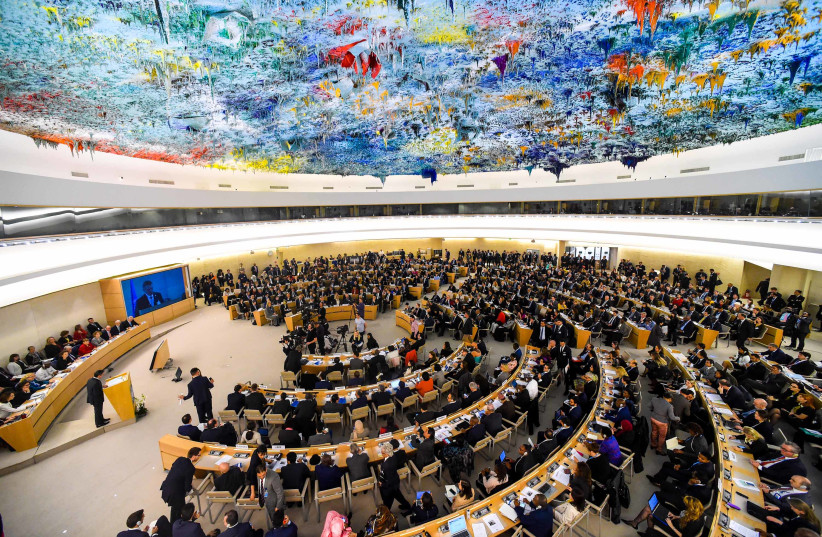Israel was one of 47 countries to sign a declaration at the UN Human Rights Council in Geneva on Tuesday denouncing China’s forced imprisonment of Uighur Muslims.
"We continue to be gravely concerned about the human rights situation in Xinjiang Uyghur Autonomous Region."
Dutch Ambassador Paul Bekkers
“We continue to be gravely concerned about the human rights situation in the Xinjiang Uighur Autonomous Region,” Dutch Ambassador Paul Bekkers said as he read out the declaration during the second day of the HRC’s 50th session.
This is the second year in a row that Israeli has signed such a statement. Last year, the initiative to highlight China’s human rights abuses was led by Canada, with the support from the US and many European countries. This year, it was spearheaded by the Netherlands. Israel, however, declined to sign a similar statement read out in the fall at the General Assembly.
UNHRC

Bekkers told the council that “Numerous extensively researched and credible reports indicate that over a million people have been arbitrarily detained.”
While the statement spoke of the abusive treatment of the Uighur Muslims, it did not mention the word genocide.
There are “reports of ongoing widespread surveillance, discrimination against Uighurs and other persons belonging to minorities, as well as of severe restrictions on Uighur culture and the exercise of human rights and fundamental freedoms, including the right to freedom of religion or belief,” Bekkers said. “We are also concerned about reports of torture and other cruel, inhuman or degrading treatment or punishment, forced sterilization, sexual and gender-based violence, forced labor, and forced separation of children from their parents by authorities.”
The Dutch envoy said that aside from the mistreatment of the Uighur Muslims, the signatories to the statement were also “gravely” concerned about the deterioration of human rights in Hong Kong and Tibet.
He urged China to comply with international law, and to ratify the International Covenant on Civil and Political Rights. Bekkers also called on countries not to force people at risk to return to China.
Bekkers noted the restricted visit UN High Commissioner for Human Rights Michele Bachelet made to China in May, and asked for a timeline for the submission of her report on that visit.
Bachelet, 70, was criticized for her China trip by rights groups, as well as by some Western governments including the US. They said the conditions that China’s authorities imposed on the visit did not enable a complete and independent assessment of the human rights environment.
There has been speculation that the backlash from Bachelet’s China trip is behind her announcement on Monday that she plans to step down in August at the end of her four-year term, rather than accept a second term.
The countries that signed the China statement were Albania, Andorra, Australia, Austria, Belgium, Belize, Bulgaria, Canada, Croatia, the Czech Republic, Denmark, Estonia, Eswatini, Finland, France, Germany, Guatemala, Honduras, Iceland, Ireland, Israel, Italy, Japan, Latvia, Liechtenstein, Liberia, Lithuania, Luxembourg, the Marshall Islands, Monaco, Montenegro, Netherlands, New Zealand, North Macedonia, Norway, Palau, Poland, Portugal, Romania, San Marino, Slovakia, Slovenia, Spain, Sweden, Switzerland, the United Kingdom and the United States.
Reuters contributed to this report.
